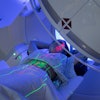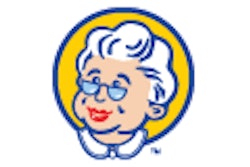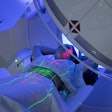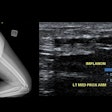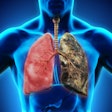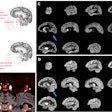
To master a skill, a trainee needs to progress from novice to apprentice to expert -- a process beautifully described in an excellent book by Dr. Roger Kneebone, PhD, "Expert: Understanding the path to mastery." Typically, there are four stages of competence (though Kneebone describes a more nuanced and gradual process): unconscious and conscious incompetence, followed by conscious and then unconscious competence.
If you are a trainee, your trainers will be most anxious about you at stage one (unconscious incompetence); this is where you'll be kept on a tight leash, especially if they decide you are overconfident. The most important thing your trainers want to know about you is that you know when to stop and ask for help. If you're not aware of the limitations of your skill, you'll make an error, and that makes trainers nervous because they carry the responsibility.
The Dunning-Kruger effect can manifest here. It's a difficult time for you, because everything seems bewildering, but don't try to impress by biting off more than you can chew. Listen, watch, ask questions, be keen and present. Take on small simple tasks with direct supervision and don't be afraid to stop if you get out of your depth. Asking for help is not a weakness, it's a strength. Your trainers should support you in this, and if they don't, they are not good trainers.
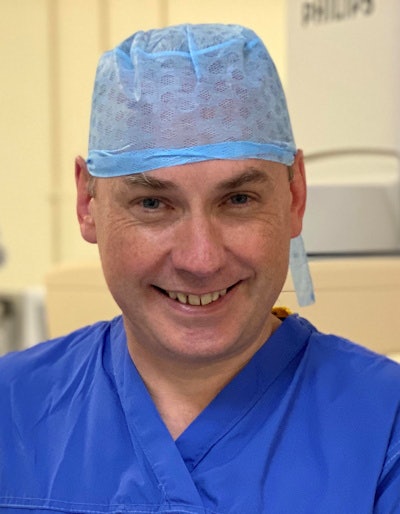 Dr. Chris Hammond from Leeds, U.K.
Dr. Chris Hammond from Leeds, U.K.Stage two (conscious incompetence) is depressing. You'll be able to do some limited stuff, but the enormity of the knowledge and skills left to acquire will have become apparent. The only way to get through this is by hard work. Slowly but surely, you'll get better -- more knowledgeable by reading and more technically proficient by doing. The amount of direct supervision you need will slowly decline, though you'll still need some.
You'll also start to develop some of the essential nontechnical skills you will need to succeed by forming relationships with colleagues, developing your bedside manner, observing others and how they behave, and by experiencing the way your department runs. Moving around between sites can be difficult, as you'll need to convince a new set of trainers each time that you're not still at stage one. But moving can be a bonus, as you'll perceive subtle differences in how departments work that you can absorb or discard as you like.
By stage three (conscious competence), you will have started to find your feet and feel more confident. It's still an intellectual and physical effort to do cases, but you feel as though you're developing. Each case is different and interesting and presents new problems for you to negotiate and learn from. You can take on new challenges because you can see their scope and understand the fundamentals of how to address them.
As you develop, people start to ask your opinion, or you feel you can disagree with your trainers about how something might be done and legitimately defend your position. I think most new consultants start in the middle of this stage. The conscious nature of their expertise also makes them ideal trainers because they can still explain how and why they are doing something. This time can be really fulfilling: You feel that, finally, after all that hard work, you've arrived.
Then, slowly, imperceptibly you will progress to stage four: unconscious competence. The cases no longer require the same degree of intellectual effort as before, decision-making starts to become automated. You can do more than one thing at once. The difference (for me) is the difference between knowing and feeling. You develop and trust a "spidey-sense" for when something's not quite right. You start to do things that you cannot explain, and because of this, your usefulness as a teacher starts to decline. Your key decision nodes start to reduce and you get faster and more assured -- maybe some of that imposter syndrome starts to dissipate.
At this stage, you start to feel you belong -- in part perhaps because your colleagues (locally and nationally) start to become less the people who trained you and more the people who you trained with. You start to design and own the pathways and processes for patients, trainees, and organizations, rather than just following someone else's rules. You negotiate uncertainty with increasing confidence.
The need for focus
One of the challenges at the stage of unconscious competence is focus. When you no longer need to think about what you are doing some of the time, you can allow other thoughts to impinge on your cognitive bandwidth. Maybe you're working on a paper, or for a national committee. Maybe the frustrations of working for a large inefficient organization get you down. Maybe you are navigating the joys of being a new parent. Maybe you're becoming bored.
If professional or personal issues are no longer crowded out by the task at hand, without vigilance, they, in turn, can crowd out your concentration and performance. Recognizing this is hard and requires a self-awareness that is rarely taught.
The longer you stay an independent practitioner, the greater the risk that your practice can drift precisely because you are independent. How do you know you've not drifted back toward incompetence in some specific regard if you've unconsciously switched off and stopped thinking, started to take short cuts, stopped caring, or started to burn out, if you don't read the literature critically (or at all) or have fallen into one of many other potential professional pitfalls?
Unlike aviation, medicine has avoided high-stakes summative assessments of performance, and by the time your practice has drifted sufficiently to affect your outcomes (to the extent that someone will notice), it's already too late.
Power of mentoring
The challenge then is to stay unconsciously competent as you finally become an expert.
Being open within a supportive group of colleagues is crucial. A toxic working environment causes many issues, but if colleagues cannot critique each other productively, then each individual becomes increasingly siloed. A functional meeting at which errors, difficult cases, and complications can be discussed without fear of censure is a huge departmental asset. Undertaking cases jointly with colleagues can also be useful for building and maintaining relationships and for sharing experience. It can also be fun.
Perhaps one thing we don't exploit much in medicine is mentoring, or coaching. Atul Gawande discusses this in his 2011 essay, "Personal Best." A mentor is there only to watch you practice and to offer nonjudgemental support, make suggestions, and offer advice -- a meeting of expert minds rather than a formal training relationship. It's very different from a colleague working with you.
A mentor is ideally someone you invite in, not someone imposed from outside. The trigger comes from the mentee and this requires them to recognize the need. Such mentoring relationships are difficult in practice as they take time and organization, and they rely on personal qualities (in both the mentor and the mentee) like openness, tact, self-awareness, and the ability to reflect. These are not universal traits. For a mentoring relationship to work we need, at the peak of our professional arc, to be humble.
Progressing through the stages of competence is a journey to be enjoyed for the flourishing it brings, not just for the end goal of a consultant (or attending) job. Lifelong learning does not stop with your Certificate of Completion of Training, and knowledge and skills continue to accrue well into the later stages of your professional career. But the more senior you become, the more independent you become, more than anything, you need to know yourself.
Dr. Chris Hammond is a consultant vascular radiologist and clinical lead for interventional radiology at Leeds Teaching Hospitals NHS Trust, Leeds, U.K.
The comments and observations expressed herein do not necessarily reflect the opinions of AuntMinnieEurope.com, nor should they be construed as an endorsement or admonishment of any particular vendor, analyst, industry consultant, or consulting group.


